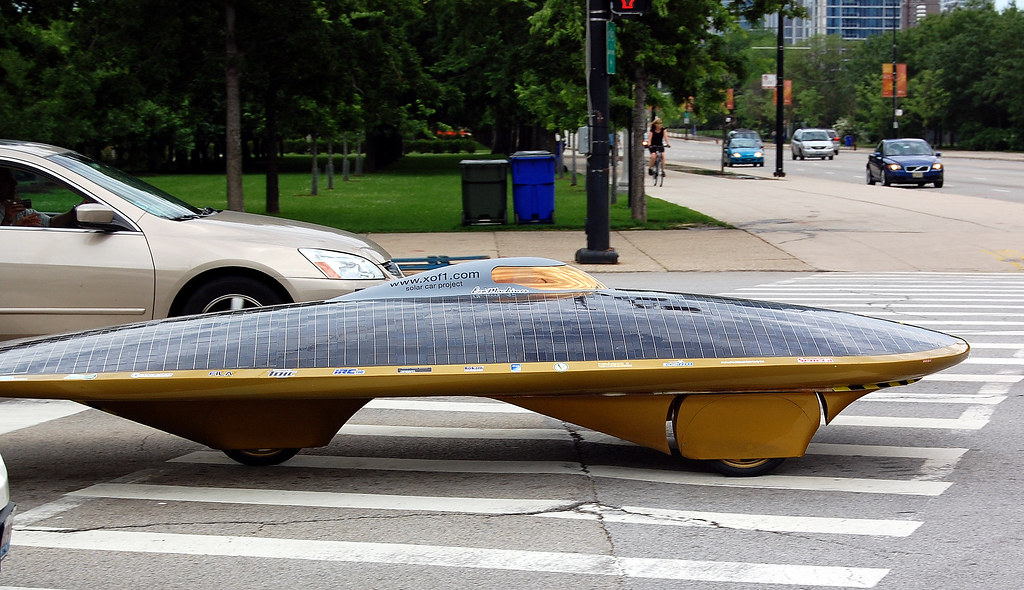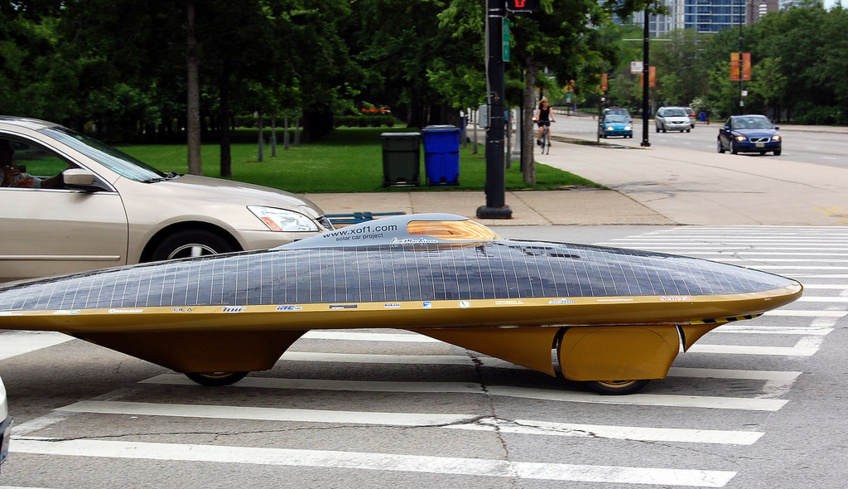Will Jones faced a significant challenge when his solar-powered vehicle broke down in the desert under scorching temperatures of 119 degrees. With the nearest gas station over 50 miles away, the situation seemed bleak. Will and three friends had spent nearly three years designing and building the car, named "Sunstrider," with hopes of driving it across the U.S. However, their journey was threatened by an overheated electrical board.
Despite the setback, Will was confident in the skills and teamwork of his group, as well as the cutting-edge technology they had on hand. The team worked together to resolve the issue, allowing Sunstrider to continue its journey. In the end, they set a new record for the fastest solar-powered vehicle crossing, completing the trip in 13 days, 15 hours, and 19 minutes.
"It's unreal," Will remarked, reflecting on their achievement. "We spent years planning, and then we actually pulled it off." Their success garnered national media attention.
The four Michigan college students received support from 3M, who contributed a breakthrough technology—3M Passive Radiative Cooling Film—that was applied to select areas of the vehicle. This innovative film reflects solar energy and radiates heat into the sky, significantly cooling parts of the car, particularly the driver’s cockpit.
"Not only did it keep the cockpit cooler, but it also shielded us from the sun," said team member Danny Ezzo. "The ride would have been unbearable without it."
Today, 3M is exploring the application of this cooling film across various industries, including warehouses, mass transit vehicles, and even public spaces. In Phoenix, Arizona State University researchers have partnered with the city to test the film's ability to reduce temperatures in public areas.
Initial studies have shown promising results, said Dave Sailor, director of the School of Geographical Sciences and Urban Planning, noting that shelters coated with the film improved conditions for pedestrians.
The technology has also been tested on the roof of a Minneapolis grocery store, where it resulted in notable reductions in refrigeration costs.
3M scientist Tim Hebrink, the inventor of the cooling film, said the primary goal was to enhance comfort while lowering energy consumption.
“My hope is that we cover the roofs of buildings and vehicles all over the world to improve human comfort and save energy,” said Tim. “Everyone can benefit from this technology.”
Despite the setback, Will was confident in the skills and teamwork of his group, as well as the cutting-edge technology they had on hand. The team worked together to resolve the issue, allowing Sunstrider to continue its journey. In the end, they set a new record for the fastest solar-powered vehicle crossing, completing the trip in 13 days, 15 hours, and 19 minutes.
"It's unreal," Will remarked, reflecting on their achievement. "We spent years planning, and then we actually pulled it off." Their success garnered national media attention.
The four Michigan college students received support from 3M, who contributed a breakthrough technology—3M Passive Radiative Cooling Film—that was applied to select areas of the vehicle. This innovative film reflects solar energy and radiates heat into the sky, significantly cooling parts of the car, particularly the driver’s cockpit.
"Not only did it keep the cockpit cooler, but it also shielded us from the sun," said team member Danny Ezzo. "The ride would have been unbearable without it."
Today, 3M is exploring the application of this cooling film across various industries, including warehouses, mass transit vehicles, and even public spaces. In Phoenix, Arizona State University researchers have partnered with the city to test the film's ability to reduce temperatures in public areas.
Initial studies have shown promising results, said Dave Sailor, director of the School of Geographical Sciences and Urban Planning, noting that shelters coated with the film improved conditions for pedestrians.
The technology has also been tested on the roof of a Minneapolis grocery store, where it resulted in notable reductions in refrigeration costs.
3M scientist Tim Hebrink, the inventor of the cooling film, said the primary goal was to enhance comfort while lowering energy consumption.
“My hope is that we cover the roofs of buildings and vehicles all over the world to improve human comfort and save energy,” said Tim. “Everyone can benefit from this technology.”


 Will Jones Sets Solar Car Record with 3M Cooling Technology
Will Jones Sets Solar Car Record with 3M Cooling Technology





 Companies
Companies